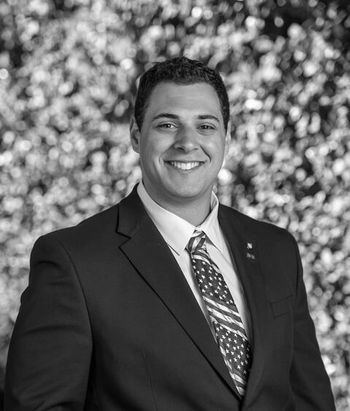RIGOLIZZO: Cameras in your home? No problem for the children of the Longhouse
A generation of people raised without privacy and with zealous Safetyism is bound to accept surveillance as a good.
The kids are alright— with government surveillance.
That’s according to a survey from the libertarian CATO Institute, as reported by Campus Reform earlier this month. Nearly 3 in 10 Americans in the 18-29 age cohort said they were in favor of government installing cameras in private residences for the stated purpose of reducing “domestic violence, abuse, and other illegal activity.” This generation, to which I belong, was twice as likely as the rest of the population to support the idea; just 14% of respondents overall said they would support it.
CATO’s findings also coincided with Amazon settling a nearly $6 million complaint from the Federal Trade Commission over Ring security cameras being used to spy on homeowners. The FTC found that Ring used customers’ camera footage to train algorithms without their consent. One employee used it to enjoy his own personal voyeur show of women in their bedrooms and bathrooms, until another employee stopped him. Worse, the FTC found that Ring’s internal security protocols were so lax that hackers were able to breach users’ accounts and access their stored videos, or even harass them using the two-way communication function.
Besides a dizzying tightrope over a Third Amendment abyss, if giant corporations are so grossly negligent that they let perverts and scammers into your video doorbells, who really thinks the federal government will do any better? The same Feds whose greatest hits in the last decade include the NSA mass surveillance scandal, spying on Donald Trump as both candidate and President, investigating parents at school board meetings, and trying to cultivate intelligence sources in Catholic churches?
But I’m not shocked by these numbers. My generation was raised in the Longhouse. Popularized by right-wing Twitter anon L0m3z, the Longhouse analogy represents American society exchanging individual Liberty for safety and comfort; and surveillance is a key part of how the Longhouse functions. More of my peers choose to participate in Longhouse society, by consenting to surveillance, simply because we’ve been raised in it.
The historical longhouse was a large communal hall, serving as the social focal point for many cultures and peoples throughout the world that were typically more sedentary and agrarian. In online discourse, this historical function gets generalized to contemporary patterns of social organization, in particular the exchange of privacy—and its attendant autonomy—for the modest comforts and security of collective living.
- L0m3z
For starters, my generation has been utterly desensitized to mass surveillance. Most of us were not politically aware when Edward Snowden or Wikileaks were major news stories. Besides, this is a cohort that has turned the kind of surveillance exposed by Snowden and Wikileaks into a meme. There are thousands of memes about our personal FBI agents looking through our phones and webcams, becoming intimately acquainted with our lives. We romanticize spying (sometimes literally). The Longhouse Mother never lets a child out of her sight, but the children love her because she keeps them safe. In the same way, many of us accept mass surveillance because we assume it is keeping us safe.
We’ve also devalued privacy— really, had it devalued for us— by social media. We freely give away our thoughts, our relationships, our lives, and even our bodies for the entire world to see. In the Longhouse, and online, every part of you, even your very self, belongs to everyone.
Indeed privacy has been cruelly sacrificed at the altar of Safetyism. From campus speech codes and cancel culture to the militant neurosis of the COVID pandemic, safety, particularly emotional safety, is sacrosanct. The Mother is a helicopter parent. The prospect of the state putting a stop to “abuse” and “illegal activity” has to be enticing to Safetyism’s zealots. And what do those words mean? To people who believe that “hate speech is not free speech,” anything they want. In a mass surveillance regime, the cancel mob can find, expose, and destroy you wherever you are. There is nowhere to hide from the Longhouse Mother. In the surveillance state, there’s nowhere to hide from Safetyists.
[RELATED: SURVEY: Young Americans trust colleges more than police, military, and churches]
I also have to imagine that many of the people in favor of government cameras believe they would be on the watching end. Of course, thanks to our government’s radical commitment to equity and DEI, they’re probably right. In the Longhouse, the children are groomed to one day take the Mother’s place. Our already left-wing bureaucracy is grooming other left-wingers to continue its project when the old bureaucrats are gone.
It’s not surprising in the least that my generation is more favorable toward mass surveillance. The good news is that despite 3 in 10 of us being ok with it, the other 7 in 10 aren’t. But this minority is likely the favored non-binary children of the Longhouse, the zealots of Safetyism and left-wing ideology more broadly. If we wish to avoid living in a mass surveillance state run by less than a third of the population, my generation must escape the Longhouse. We must reclaim our bodies, our personal lives, and ourselves. If we don’t, surveillance will be the least of our worries.

